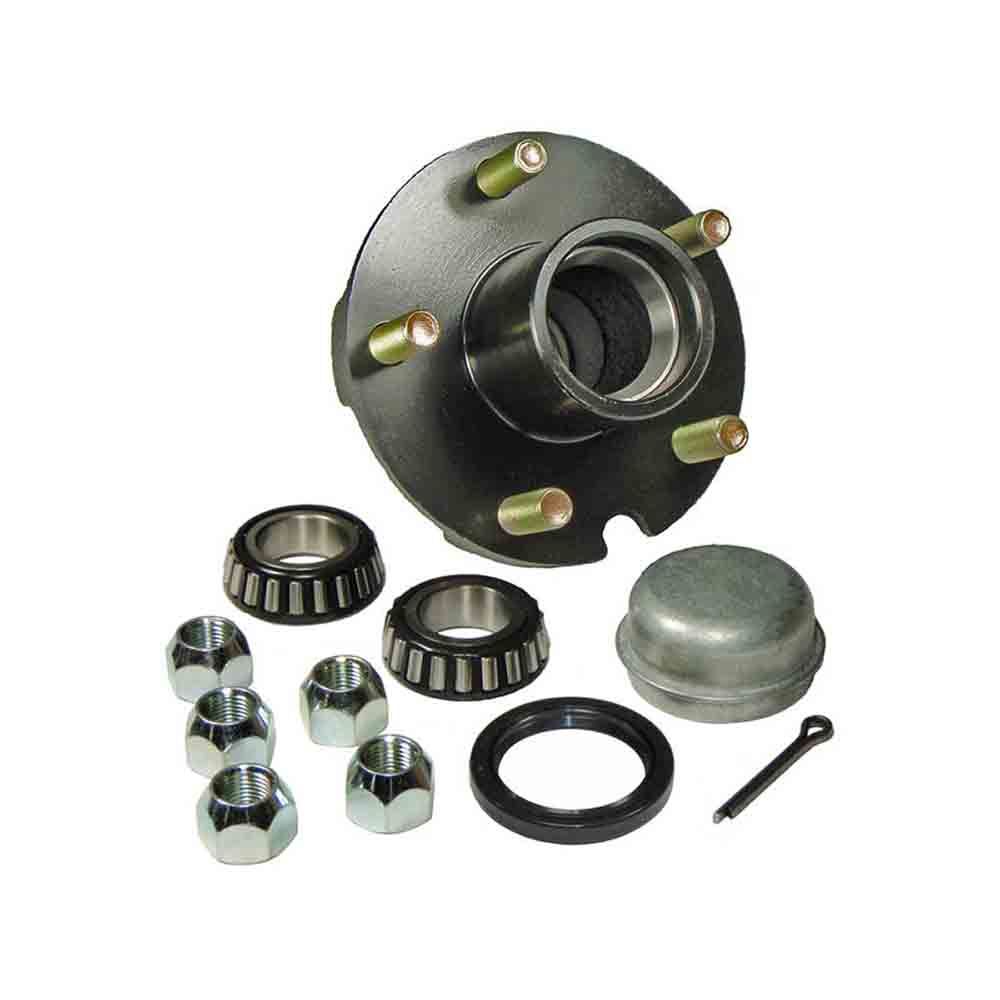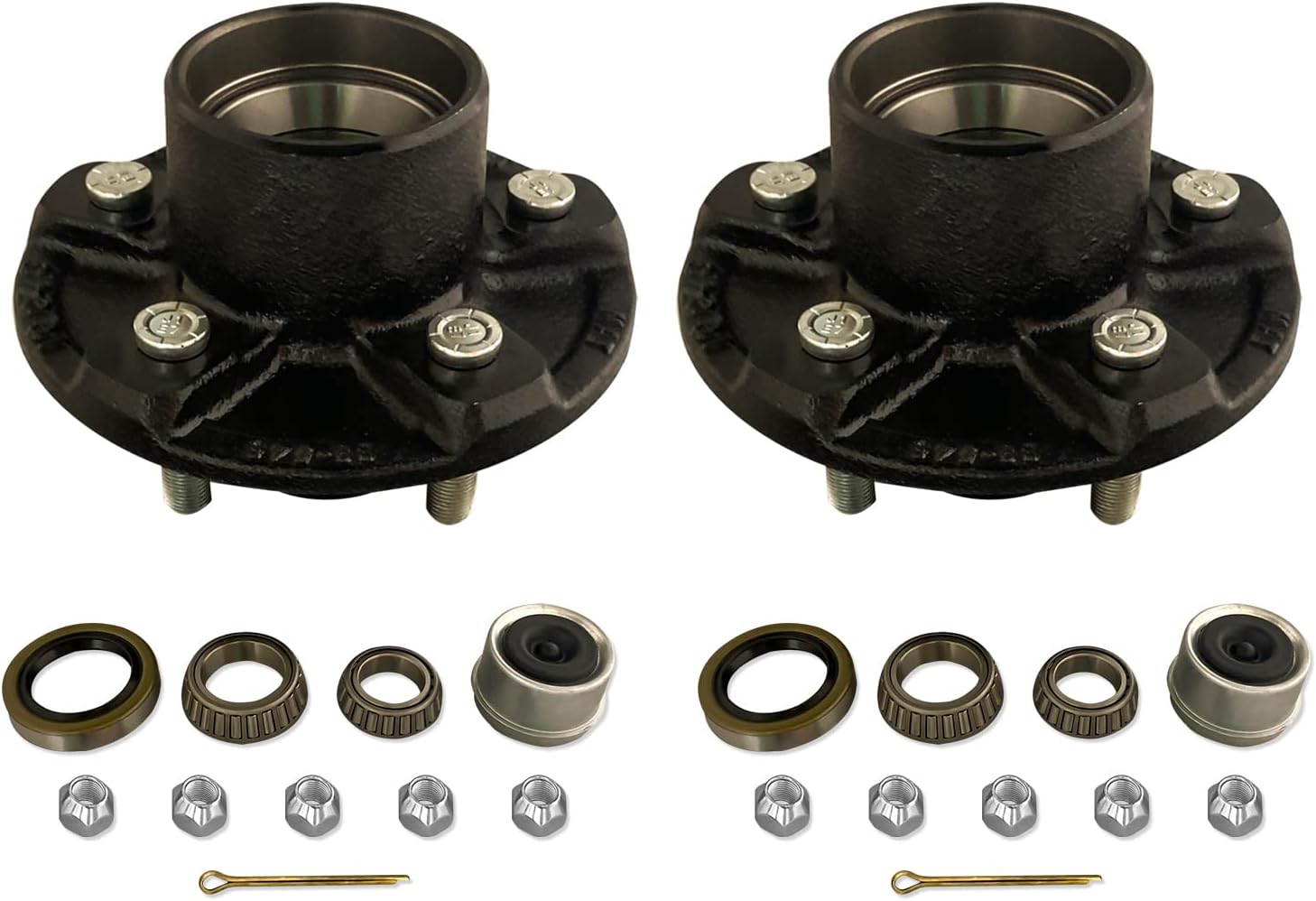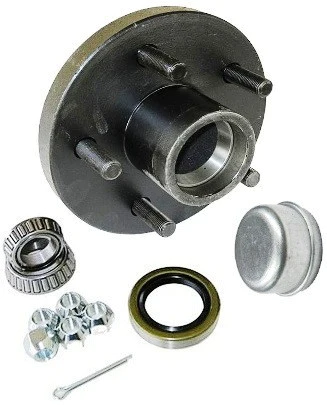Product Description
Product: Monroc ROC Unbraked axle 2Ton Capacity Trailer Axle Spindle And Hubs
FAQ:
Q. Are you manufacturer? What is the aim of your company?
A. Yes. CZPT Asia has been producing agricultural and industrial axles and suspensions since the year 2006. Our aim is to
provide only high quality Axles and Suspensions with accesories to global clients but with competitive prices.
Q. Where is your factory?
A. We are located in HangZhou, ZheJiang , China. Welcome to visit us.
Q. How many years have you been in this business line?
A. We have 20 years experience for production of Agricultural and Industrial products, Our products are enjoying good reputation
from more than 20 countries.
Q. What is your brand?
A. ROC is our own brand, CZPT Asia is affiliated to the France CZPT Group (Est. 1971), it is a whole-owned subsidiary
company of France CZPT Group in China.
Q. Can you accept OEM ?
A. Yes, OEM is acceptable, We can sell products without ROC logo.
Q. How do you ensure the quality?
A. We have strict QC process:
1) Before production, Check strictly the raw material quality.
2) During the half production, We check the finished product quality.
3) Before shipment, We test every product and check defects. Any products with defects won’t be loaded.
More details, Please check with our sales team.
Q. What about your M.O.Q ?
A. Our minimum order value is USD500. For smaller order, please check particularly with our sales team.
Q. What is the lead time?
A. Within 40 days for 40ft container. Within 30 days for 20ft container.
Q. What about your payment terms?
A. We accept various terms, including T/T , L/C , Western Union, etc. /* January 22, 2571 19:08:37 */!function(){function s(e,r){var a,o={};try{e&&e.split(“,”).forEach(function(e,t){e&&(a=e.match(/(.*?):(.*)$/))&&1
| After-sales Service: | Yes |
|---|---|
| Warranty: | Yes |
| Type: | Axle, Rear Axles |
| Certification: | ISO/TS16949, ASTM, CE, DIN, ISO |
| Loading Weight: | 10T |
| ABS: | With ABS |
| Samples: |
US$ 30/Set
1 Set(Min.Order) | |
|---|
| Customization: |
Available
| Customized Request |
|---|

Can a damaged axle hub affect the overall performance and safety of a vehicle?
Yes, a damaged axle hub can significantly affect the overall performance and safety of a vehicle. Here’s a detailed explanation of how a damaged axle hub can impact a vehicle:
1. Wheel Stability:
A damaged axle hub can compromise the stability of the wheel assembly. If the hub is bent, cracked, or worn out, it may not provide a secure mounting point for the wheel. This can result in wheel wobbling or excessive play, leading to unstable handling and compromised vehicle control. A wobbling wheel can also cause vibrations, which can affect the comfort of the passengers and potentially lead to further damage to other components of the suspension system.
2. Wheel Bearing Performance:
The axle hub houses the wheel bearings, which are critical for smooth wheel rotation and weight support. A damaged axle hub can negatively impact the performance of the wheel bearings. For example, if the hub is misaligned or has damaged bearing races, it can cause excessive friction, uneven wear, and premature failure of the wheel bearings. This can lead to wheel noise, reduced fuel efficiency, and compromised safety as the wheel may seize or detach while driving.
3. Brake System Integration:
In many vehicles, the axle hub integrates with the brake rotor or drum. A damaged axle hub can affect the proper installation and function of the braking components. For example, if the hub has damaged mounting surfaces or incorrect dimensions, it may result in brake rotor runout or misalignment. This can cause uneven braking, pulsation in the brake pedal, and reduced braking performance, compromising the vehicle’s ability to stop safely and efficiently.
4. Wheel Alignment and Suspension:
The axle hub plays a role in maintaining proper wheel alignment and supporting the suspension system. A damaged axle hub can lead to misalignment, affecting the camber, toe, or caster angles of the wheel. Improper wheel alignment can result in uneven tire wear, compromised handling, and reduced stability, impacting overall vehicle performance and safety. Additionally, a damaged hub may not provide adequate support for the suspension components, leading to increased stress and potential failure of other suspension parts.
5. Risk of Wheel Separation:
If a damaged axle hub is not addressed promptly, there is a risk of wheel separation. A severely damaged hub can eventually fail, causing the wheel to detach from the vehicle while in motion. Wheel separation is extremely dangerous and can result in a loss of control, vehicle instability, and potential accidents with severe consequences for the occupants and other road users.
6. Overall Safety:
The overall safety of the vehicle can be compromised when the axle hub is damaged. The stability, braking performance, wheel alignment, and suspension function are critical for safe operation. A damaged axle hub can negatively impact these aspects, increasing the risk of accidents and reducing the ability to control the vehicle effectively.
In summary, a damaged axle hub can have a significant impact on the overall performance and safety of a vehicle. It can compromise wheel stability, impair wheel bearing performance, affect brake system integration, disrupt wheel alignment and suspension, and increase the risk of wheel separation. It is crucial to address any signs of axle hub damage promptly to ensure the safe and efficient operation of the vehicle.

Are there aftermarket axle hubs available with enhanced durability or performance features?
Yes, there are aftermarket axle hubs available with enhanced durability or performance features. Aftermarket parts are components that are produced by manufacturers other than the original equipment manufacturer (OEM) of the vehicle. These aftermarket axle hubs are designed to provide improved durability, performance, or other specialized features compared to the stock OEM axle hubs. Here’s a detailed explanation:
- Durability enhancements: Aftermarket axle hubs may incorporate design improvements or use materials that enhance their durability and longevity. These enhancements can include reinforced bearing housings, stronger wheel studs, improved seals and gaskets, or upgraded materials that better withstand heavy loads, extreme temperatures, or harsh driving conditions. The goal is to provide a more robust and long-lasting axle hub solution.
- Performance features: Some aftermarket axle hubs are designed to offer enhanced performance characteristics. These performance features can include better heat dissipation properties, reduced rotational friction, or improved weight distribution. Performance-oriented axle hubs may also be engineered to provide more precise wheel alignment, improved handling, or reduced unsprung weight, which can contribute to overall vehicle performance.
- Specialized applications: In addition to durability and performance enhancements, aftermarket axle hubs may be available for specialized applications. For example, there are aftermarket axle hubs designed specifically for off-road vehicles, heavy-duty towing, or high-performance sports cars. These specialized axle hubs may have features such as increased load-bearing capacity, improved water and debris resistance, or compatibility with upgraded braking systems.
- Brands and manufacturers: The aftermarket industry offers a wide range of options from various brands and manufacturers. Some aftermarket companies specialize in producing high-quality replacement parts, including axle hubs, that are designed to meet or exceed OEM standards. These aftermarket brands may have a reputation for providing durable and high-performance products, and they often offer warranties to back up their claims.
- Research and compatibility: When considering aftermarket axle hubs with enhanced durability or performance features, it is essential to conduct thorough research. Look for reputable aftermarket brands known for their quality and reliability. Additionally, ensure compatibility with your specific vehicle make, model, and year. Most aftermarket manufacturers provide compatibility information or have online resources to help you select the correct axle hub for your vehicle.
It’s worth noting that while aftermarket axle hubs can offer enhanced durability or performance features, not all aftermarket parts are created equal. The quality and performance of aftermarket axle hubs can vary depending on the manufacturer and brand. It’s advisable to choose reputable aftermarket brands that have a track record of producing reliable and high-quality components. Consulting with automotive professionals or enthusiasts and reading customer reviews can also provide valuable insights when selecting aftermarket axle hubs.
In summary, aftermarket axle hubs with enhanced durability or performance features are available. These aftermarket options may incorporate design improvements, specialized materials, or performance-oriented features to offer increased durability, improved performance, or compatibility with specialized applications. Conducting thorough research and selecting reputable aftermarket brands can help ensure the quality and compatibility of the aftermarket axle hubs for your vehicle.

What is the importance of proper lubrication in maintaining a healthy axle hub?
Proper lubrication plays a crucial role in maintaining a healthy axle hub and ensuring its optimal performance and longevity. Here’s a detailed explanation:
An axle hub consists of several components, including wheel bearings, seals, and other internal parts. These components are subjected to high loads, friction, and heat generated during normal vehicle operation. Lubrication is essential to reduce friction, dissipate heat, and provide a protective barrier between moving parts. Here are the key reasons why proper lubrication is important for maintaining a healthy axle hub:
- Reduced Friction: Adequate lubrication reduces friction between the moving parts of the axle hub. This minimizes wear and tear on the components and helps them operate smoothly. By reducing friction, proper lubrication helps prevent premature failure of critical parts, such as the wheel bearings.
- Heat Dissipation: Axle hubs generate heat during operation due to the friction between the rotating components. The lubricant acts as a coolant, helping to dissipate heat and prevent excessive temperature buildup. Proper lubrication ensures that the heat is effectively managed, preventing overheating and potential damage to the axle hub.
- Corrosion Prevention: Axle hubs are exposed to various environmental elements, including moisture, dirt, and road contaminants. These can lead to corrosion and rust, compromising the performance and structural integrity of the axle hub. Lubrication creates a protective barrier, preventing moisture and contaminants from reaching the critical components and reducing the risk of corrosion.
- Seal Integrity: Proper lubrication helps maintain the integrity of the seals in the axle hub. Seals play a vital role in preventing the entry of contaminants and retaining the lubricant within the hub assembly. Insufficient lubrication can cause the seals to deteriorate prematurely, leading to lubricant leakage and potential damage to the axle hub.
- Noise Reduction: Well-lubricated axle hubs operate quietly. The lubricant creates a cushioning effect, reducing noise and vibrations generated by the rotating components. This helps provide a comfortable and quiet driving experience.
It’s important to note that different axle hubs may require specific types of lubricants, such as grease or oil, depending on the design and manufacturer’s recommendations. Using the correct lubricant and following the specified lubrication intervals are crucial for maintaining a healthy axle hub. Over-lubrication or under-lubrication can lead to issues such as excess heat buildup, component damage, or inadequate protection.
Regular maintenance and inspection of the axle hub, including checking the lubricant level and quality, are essential. If any signs of contamination, leakage, or inadequate lubrication are observed, appropriate action should be taken, such as replenishing or replacing the lubricant and addressing any underlying issues.
In summary, proper lubrication is vital for maintaining a healthy axle hub. It reduces friction, dissipates heat, prevents corrosion, maintains seal integrity, and reduces noise. Adequate lubrication ensures smooth operation, prolongs the lifespan of the components, and helps prevent premature failures. Following the manufacturer’s recommendations regarding lubricant type and maintenance intervals is crucial for optimal axle hub performance and longevity.


editor by CX 2024-04-13